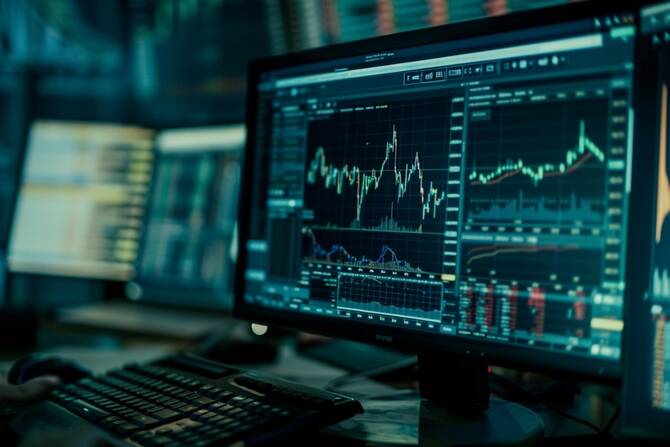RIYADH: Saudi Arabia’s annual inflation rate stood at 2.3 percent in June, up slightly from 2.2 percent in May, according to the latest data released by the General Authority for Statistics.
The increase in prices was primarily driven by a rise in housing rents, which continued to exert upward pressure on the cost of living, even as other consumer categories experienced mixed price movements.
Housing and utility costs remained the biggest contributor to inflation, rising by 6.5 percent year on year. This surge was largely due to a 7.6 percent increase in actual housing rents, with villa rental prices alone climbing 7.1 percent compared to June last year.
Given that the housing component carries a significant weight of 25.5 percent in the consumer price index basket, its persistent escalation has had an outsized impact on overall inflation.
Compared to its Gulf Cooperation Council neighbors, the Kingdom’s inflation sits near the regional average. In the UAE, annual inflation hovered around 2.3 percent in recent months, reflecting similar housing-related pressures.
The Saudi food and beverage segment experienced an annual increase of 1.5 percent, driven by a 2.4 percent rise in meat and poultry prices. The cost of personal goods and services rose by 4.1 percent, influenced in large part by a 26.5 percent spike in jewelry, watches, and antiques.
Restaurants and hotels also saw moderate inflation, rising 1.6 percent annually, while education prices increased by 1.4 percent, driven mainly by a 5 percent hike in tertiary education fees.
At the same time, downward pressure came from a handful of categories. Prices for furnishings and household equipment fell by 1.7 percent due to a decline in furniture and carpeting. Clothing and footwear prices dipped 0.6 percent, primarily due to a reduction in garment costs, while transportation prices declined 0.7 percent year on year, reflecting a 1.7 percent drop in vehicle prices.
On a monthly basis, the CPI remained broadly stable in June, registering a modest 0.2 percent increase from May according to the report. This was once again led by a 0.2 percent rise in the housing category, alongside slight increases in food, personal goods, and recreation services.
Prices of health services and communication saw minor declines, while tobacco and transportation remained flat compared to the previous month.
Saudi Arabia’s inflation rate remains moderate by global and regional standards. A combination of government subsidies, regulated utility prices, and the riyal’s fixed exchange rate to the US dollar are key stabilizing forces.
Additionally, the country’s subsidy framework, particularly in energy and essential food items, continues to shield consumers from global price shocks.
While the Kingdom’s inflation rate is in line with that seen in Kuwait — which reported a figure of approximately 2.2 percent as of May — other countries have seen a marked difference.
Qatar’s inflation remained significantly lower at just 0.5 percent year-on-year in April, and Bahrain experienced deflation, with consumer prices falling by about 1 percent annually in May.
Oman also recorded one of the lowest rates in the bloc, holding under 1 percent for much of 2025. The shared currency pegs and regional subsidy models have collectively contributed to a subdued inflationary landscape across the Gulf.
Oranges and lemons up
Saudi Arabia’s Wholesale Price Index saw an annual rise of 2.1 percent in June, driven mainly by 4.5 percent increase in transportable goods except metal products, machinery and equipment.
The price of agriculture and fishery product also increased by 4.4 percent annually according to the General Authority of Statistics.
Prices for metal products, machinery, and equipment declined by 0.3 percent due to a fall in electronics and industrial machinery costs. On a monthly basis, however, wholesale prices edged down 0.1 percent compared to May, suggesting some easing of cost pressures at the producer level.
GASTAT’s accompanying report on the Average Prices of Goods and Services offered a closer look at individual items affecting consumers directly.
The price of medium African lemons surged by 12.6 percent in June compared to the previous month, marking one of the sharpest increases among fresh produce. Abu Sorra Egyptian oranges and Pakistani mandarins also saw notable jumps.
Conversely, local onions became significantly cheaper, falling 16.7 percent month-on-month, while okra and imported onions dropped by 13.4 percent and 10.3 percent, respectively.
These fluctuations underscore the seasonal and supply-driven nature of food price changes in the Kingdom.
With inflation remaining broadly contained and economic diversification efforts continuing under Vision 2030, Saudi Arabia is maintaining a stable macroeconomic environment.
While rents and discretionary spending categories such as jewelry and education continue to rise, broader price stability across essential goods and services reflects the resilience of the Kingdom’s economic framework amid global uncertainty.




























